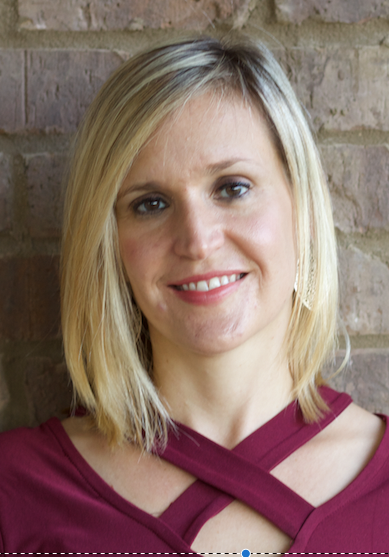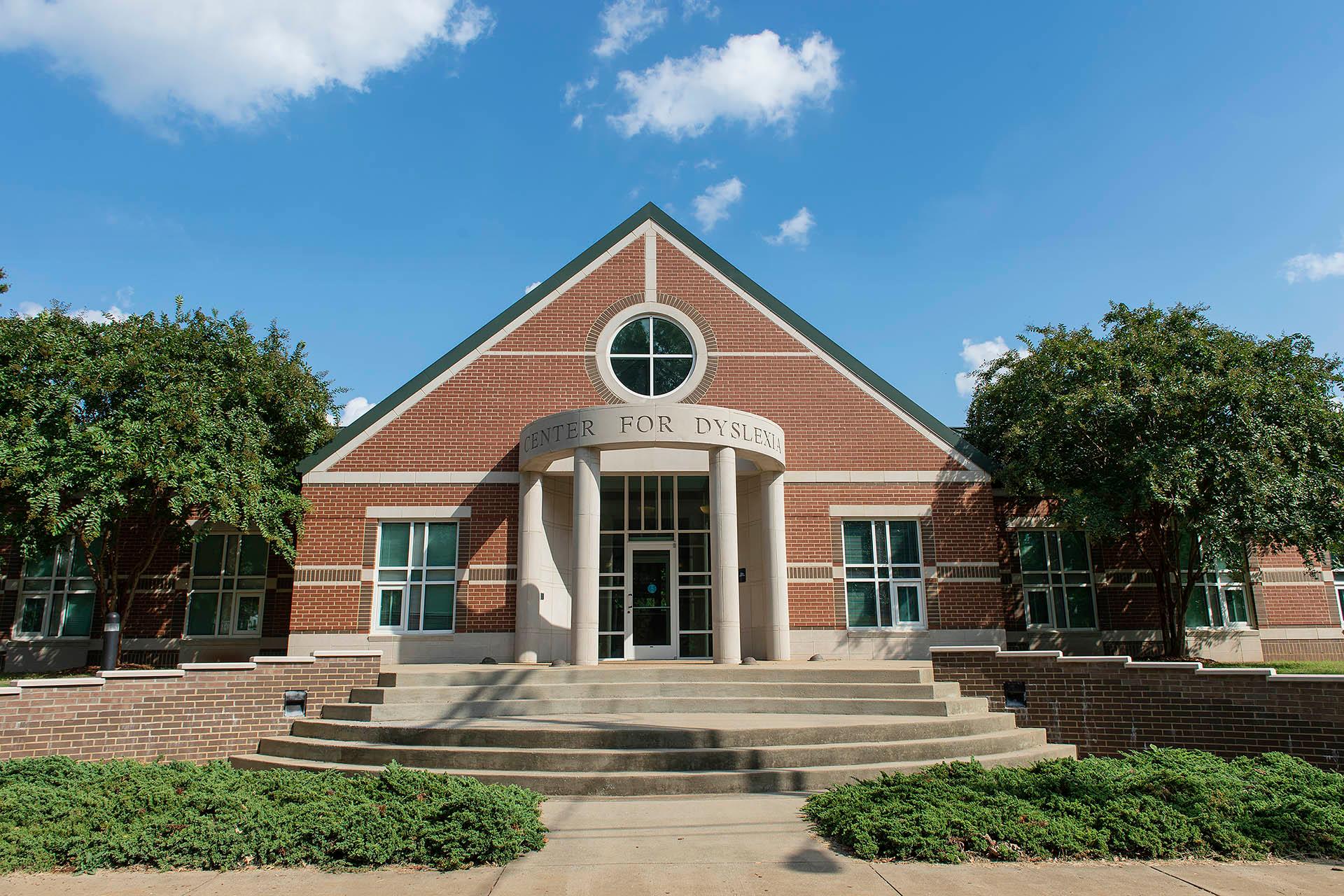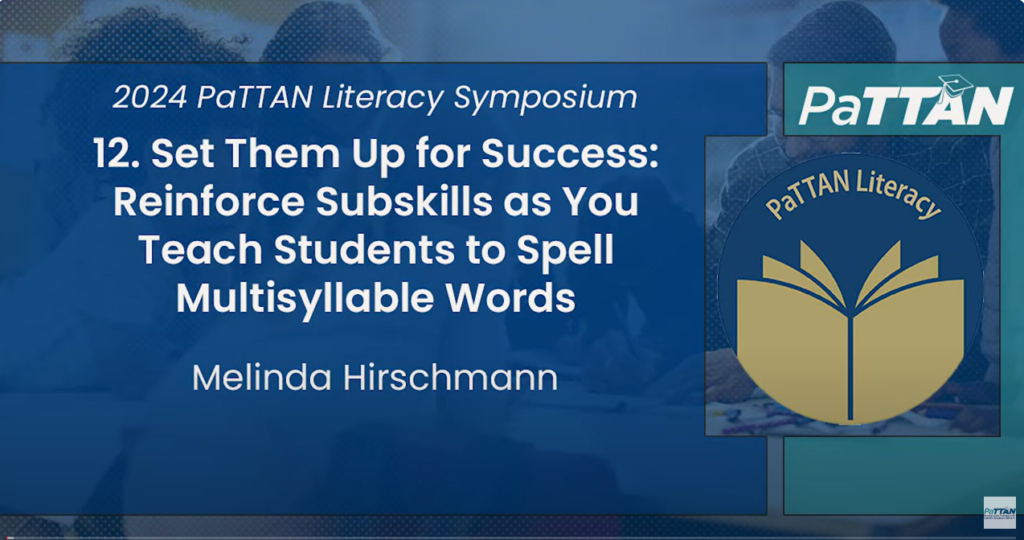Tennessee Center for the Study and Treatment of Dyslexia
Voices from the Field
How my experience in the Literacy Studies program has shaped my role as an SLP
As a speech-language pathologist (SLP) in the public-school setting, my primary role is to help students communicate more effectively. The students on my caseload have a variety of communication needs. Their needs can include articulation, language, and dysfluent speech. Some students are even nonverbal or have limited speech production and use a communication device to be their voice. It is easy to think of the primary role of a school-based SLP as the communication specialist since speech and language are part of the title. However, SLPs also play an important role in literacy development. An SLP’s role in literacy was not discussed during my courses. In fact, I had no coursework on literacy development in my graduate training. I received in-depth training on phonetics, including place, manner, and voicing of phonemes. I even learned how to transcribe speech sounds using the International Phonetic Alphabet. This all sounds well and good, but this knowledge was not translated into how to use it for building foundations of literacy for students.
I stumbled upon an interest in literacy while working in a private practice years ago. During my time in private practice, I became fascinated by dyslexia. So many of my referrals were students struggling to read, but they were also so articulate and intelligent! They could hardly read a word on the test passages but were obviously knowledgeable in areas not indicated on a reading test. I needed to know more so I could better help these students. At the time, the continuing education options for SLPs in the area of reading disabilities were pretty scarce. Luckily, there are now more quality courses in literacy available for SLPs.
“So many of my referrals were students struggling to read, but they were also so articulate and intelligent! They could hardly read a word on the test passages but were obviously knowledgeable in areas not indicated on a reading test.”
I began my journey as a doctoral student in the Literacy Studies program in August 2017. When I initially began the program, I continued to work in private practice. I also began a part-time graduate assistant role at the Center for Dyslexia. I knew absolutely nothing about research and certainly did not spend time reading research articles. I relied on others to tell me what programs and interventions worked for struggling readers. As I delved into learning about research and becoming part of a research team, my eyes were opened. I learned to question everything! The term “research-based” does not necessarily mean “evidence-based.” Many reading programs that are widely used have not been empirically tested. However, they are based on prior research findings. I found myself restructuring my interventions with students with reading disabilities.
Almost three years ago, I left private practice and returned to the school system. I had previously worked in public schools; however, I approached my role as an SLP differently now. The trainings and interactions with experts in the field of literacy have deepened my knowledge and awareness. I learned how language and literacy are intertwined. Language is the basis of literacy development and a child’s literacy growth is dependent upon language. This is something I didn’t understand prior to my training in the Literacy Studies program. Students with language delays are at risk for later reading problems, particularly in the area of reading comprehension. An SLP can help to identify students who may struggle later on with reading. They can support students’ language development to foster comprehension. Young students referred for what seems to be only articulation errors may also be at risk for reading difficulties. SLPs can use their existing knowledge of phonemes and explicitly teach children how phonemes are produced (e.g., voiced/unvoiced and place of articulation) to deepen students’ knowledge and awareness of the sound system of our language. This knowledge of phonemes helps children become better at reading and spelling.
My role as an SLP is now shaped by looking at it through the lens of supporting literacy development. This was not an approach I had used prior to my doctoral career. SLPs are often boxed into the role as the professional who only fixes speech sound errors. Our role is much more than correcting students’ speech and improving intelligibility. The knowledge and expertise of the faculty in the Literacy Studies program have broadened my perspective on language and literacy. When a student is referred for speech sound errors or a language delay, I look at the child holistically. I begin to question “Is this student at risk for a future reading problem?” In addition to screening for speech and language, I may include phonological processing measures to further investigate any underlying phonological processing deficit. For a student with phonological processing deficits and speech sound errors, I will incorporate phonological awareness activities such as building phonemic awareness skills into therapy sessions.
When a student is referred for speech sound errors or a language delay, I look at the child holistically. I begin to question, “Is this student at risk for a future reading problem?”
Additionally, through research and coursework in the program, I learned about the Simple View of Reading (Gough & Tunmer, 1986; Kim et al., 2017). The Simple View of Reading is a framework to explain the essential components of reading comprehension: listening comprehension and decoding. Both of these components are integral to the process of reading comprehension. Although there are other important skills needed for reading comprehension, research supports the importance of both components for successful comprehension of text. As an SLP, I am now aware of how I can support students’ reading development based on the Simple View. I feel more professionally equipped with the knowledge to identify future struggling readers and conduct more in-depth language assessments to understand why some students are struggling with reading comprehension. For assessments, I dig a little deeper than I did previously. I want to investigate where the breakdown with language occurs to bring this information to classroom teachers and help develop a plan to improve their ability to comprehend text.
From my MTSU coursework and experience at the Center for Dyslexia as a graduate assistant, I am forever changed as a clinician. My role as an SLP extends beyond correcting articulation errors. An SLP can also assist in the identification of struggling readers and improve language skills to facilitate reading comprehension using evidence-based methods. These are just a few of the things I do. An SLP is a part of a team of educators with the common goal to improve literacy outcomes.
References
- Gough, P., & Tunmer, W. (1986). Decoding, reading, and reading disability. Remedial and Special Education, 7, 6–10.
- Kim, Y. S. G. (2017). Why the simple view of reading is not simplistic: Unpacking component skills of reading using a direct and indirect effect model of reading (DIER). Scientific Studies of Reading, 21(4), 310–333. https://doi.org/10.1080/10888438.2017.1291643

Tammy Hutchings, M.S., CCC-SLP
Follow Us!
_________________________________________________________________________________________________________
NEW EXPERT MINUTES!
Learn about dyslexia, developmental language disorder, bidialectalism, and multilingualism from our 2024 Fox Reading Conference presenters.


